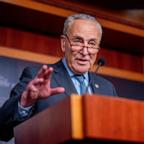July Hospitalizations: Inexperienced Doctors Make Them Riskier, Analysis Says
New study supports notion that July is riskiest month in teaching hospitals.
July 11, 2011— -- Most doctors will tell you to stay out of teaching hospitals when the new crop of inexperienced medical school graduates begins their training. A new analysis of existing studies adds to the evidence that medical trainee turnover makes July a more perilous time for hospital patients, with more deaths, longer surgeries and longer hospital stays--not to mention higher hospital charges.
However, Dr. John Q. Young, lead author of the review article, said he doesn't want the findings about the "July effect" to scare sick men and women into staying home.
"Patients should definitely seek the care they need, but beware of the July turnover and know that there's always an experienced attending physician overseeing the care of a trainee. Patients shouldn't hesitate to speak with the supervising physician if they feel anxious about the resident."
In the article, appearing in Tuesday's online edition of the American College of Physicians' Annals of Internal Medicine, Young and his co-authors suggested that potential harm to patients treated in July by newbie physicians could be lessened by more gradually increasing their responsibilities and by pairing the inexperienced interns and residents with veteran physicians.
"Not all interns, not all trainees have the same clinical skills," Young said. "We need to develop better ways of testing the skills of any given trainee so we make sure the level of responsibility they're given is commensurate with their skill level."
Young said he and his colleagues systematically reviewed 39 studies published since 1989 because of "a common perception that July is the worst month to be admitted to the hospital." The July effect, he noted, is called "the August killing season" in Great Britain. The enormous variations in the designs and quality of the various studies meant Young and his fellow researchers couldn't quantify the risk to patients hospitalized in July. Nor, he said, could they conclude "which hospitals are doing better and which are doing worse."
According to the article, the departure of experienced trainees and influx of new trainees at U.S. teaching hospitals creates a turnover of 100,000 jobs; the turnover in Europe is 32,000. "As a result, the average experience of the teaching hospital's workforce abruptly declines, established teams are disrupted and many of the remaining trainees are promoted and assume new roles in the care delivery process," Young and his co-authors wrote.
Young, a psychiatrist who helps run the residency training program at UC San Francisco, said he's watched an evolution at his institution in the past 5-10 years, as training and orientation have become more robust. In addition, he said, many departments at the medical center are "putting their best [attending physicians], their best educators, on service in July."
In an accompanying editorial, Dr. Paul Barach, a specialist in perioperative and emergency medicine at the University Medical Center in Utrecht, the Netherlands, and Ingrid Philibert, a top official of the Accreditation Council for Graduate Medical Education in Chicago, which recently implemented changes in medical training, called the new study "superb." They said it highlighted potential dangers to patients who enter hospitals during the July changing of the guard.




